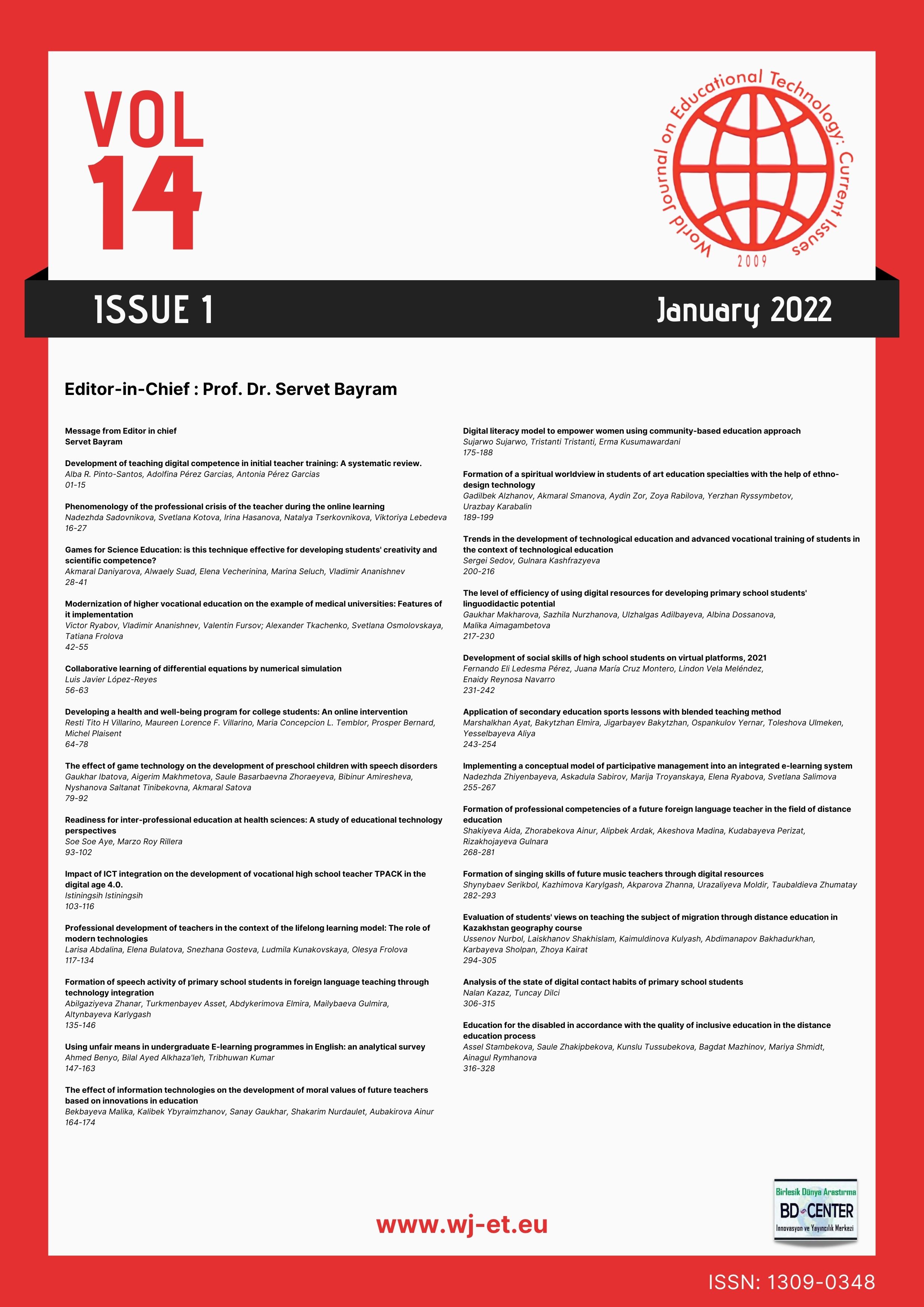Education for the disabled in accordance with the quality of inclusive education in the distance education process
Main Article Content
Abstract
The aim of this research is to evaluate the disabled education in accordance with the quality of inclusive education in the distance education process in line with the opinions of special education teachers. The research was conducted with 10 special education teachers who were teaching special education and general education in schools with special needs students in Kazakhstan and who agreed to participate in the research voluntarily. The research was designed in accordance with the case study, one of the qualitative research designs. Research data were collected with a semi-structured interview form developed by the researchers. As a result of the research, it was revealed that the teachers used online lessons, video sharing, homework control, online activities and mobile applications in the teaching of the lessons in the distance education process; they preferred formal education to distance education; and they found distance education insufficient to meet the individual needs of students in learning. In addition, teachers stated that they found family participation in distance education and teacher–student peer interaction insufficient. The results obtained from the research revealed the necessity of eliminating the obstacles in the education of the disabled in accordance with the quality of inclusive education.
Keywords; Inclusive education, students with disabilities, special education, special education students
Downloads
Article Details

This work is licensed under a Creative Commons Attribution 4.0 International License.
World Journal on Educational Technology: Current Issues is an Open Access Journal. The copyright holder is the author/s. Licensee Birlesik Dunya Yenilik Arastirma ve Yayincilik Merkezi, North Nicosia, Cyprus. All articles can be downloaded free of charge. Articles published in the Journal are Open-Access articles distributed under CC-BY license [Attribution 4.0 International (CC BY 4.0)].
Birlesik Dunya Yenilik Arastirma ve Yayincilik Merkezi (BD-Center)is a gold open-access publisher. At the point of publication, all articles from our portfolio of journals are immediately and permanently accessible online free of charge. BD-Center articles are published under the CC-BY license [Attribution 4.0 International (CC BY 4.0)], which permits unrestricted use, distribution, and reproduction in any medium, provided the original authors and the source are credited.
